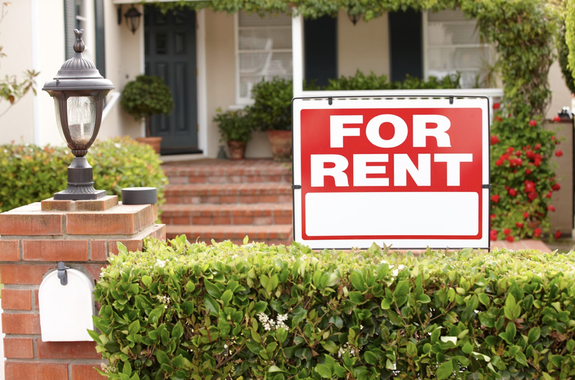[et_pb_section fb_built=”1″ _builder_version=”3.0.47″][et_pb_row _builder_version=”3.0.48″ background_size=”initial” background_position=”top_left” background_repeat=”repeat”][et_pb_column type=”4_4″ _builder_version=”3.0.47″ parallax=”off” parallax_method=”on”][et_pb_text _builder_version=”3.18.2″]
Buying A Rental Property in Farmington Hills MI:
What You Need To Know
Buying a rental property in Farmington Hills MI is a big decision with big financial implications. When you purchase a rental property, you buy a house (often a multifamily home), find tenants, and take care of the property while collecting monthly rent and paying property taxes. When planned and executed well, a rental property can be a good investment that eventually becomes a source of income and profit.
However, as with any investment, there are pros and cons to consider. Rental properties can be financially rewarding and have numerous tax benefits, including the ability to deduct insurance, the interest on your mortgage, and maintenance costs. The drawbacks of owning rental properties include a lack of liquidity, the cost of upkeep, the potential for difficult tenants, and a declining neighborhood or market.
Let’s take a deeper dive into the pros and cons of investing in rental properties:
Pros of rental properties
As a rental property owner, you will have an opportunity to secure a steady income stream, all the while building equity and letting your investment property appreciate in value. Another benefit to owning rental property is that you will be able to reap a number of tax benefits.
Tax benefits
Property owners with tenants can deduct numerous expenses associated with generating rental income. These expenses, which may include mortgage interest, real estate taxes, casualty losses, maintenance, utilities, insurance, and depreciation, will reduce the amount of rental income that’s subject to tax.
The IRS allows you to deduct expenses connected with rental property in the categories of Ordinary and Necessary Expenses, Improvements, and Depreciation. This means that you can deduct your insurance, interest on your mortgage, maintenance costs, and physical wear and tear on your property.
Depreciation may produce a nominal loss, which in turn can be deducted against other income. In other words, you may achieve net positive cash flow from the rental income minus expenses and still have a net loss for tax purposes. But be aware that depreciation also reduces the cost basis of a property for calculating capital gains when you sell your property.
Seasonal Rentals
If you rent your property seasonally, you may use it yourself for 14 days per year—or 10% of the number of days that you rent to others at a fair market price and still be able to deduct your expenses.
1031 Exchange
Section 1031 is a provision of the Internal Revenue Code (IRC) that allows the owners of investment property to defer federal taxes on some exchanges of real estate. The provision is used by those who are selling one property and reinvesting the proceeds in one or more other properties. In other words, in a 1031 exchange, you can sell a rental property and invest in another of “like-kind” without paying capital gains taxes.
Generally, if you make a like-kind exchange, you are not required to recognize a gain or loss. If, as part of the exchange, you also receive other (not like-kind) property or money, you must recognize a gain to the extent of the other property and money received. You can’t recognize a loss.
Properties are of like-kind if they’re of the same nature or character, even if they differ in grade or quality. For example, an apartment building would generally be “like-kind” to another apartment building.
Renting Extra Space
You can treat a room or area of your home, such as a garage, basement, or accessory dwelling unit, like a rental and write off a percentage of the mortgage interest and other expenses against its income. However, Keep in mind there might be laws where you live that prevent residents from renting to people who are unrelated to them without a license or permit. Make sure to check your city zoning laws to ensure you are proceeding legally.
Cons of rental properties
Though buying a rental property in Farmington Hills MI can be a solid real estate investment, there are a few potential drawbacks to owning one that should be considered, such as:
Non-liquid asset
Real estate is not an asset that can easily be converted into cash in a short amount of time. Liquid assets include things like cash, money market instruments, and marketable securities. Even in a hot market, it can take several months to find a buyer and receive the money in hand from the transaction. And if your timing is driven by an emergency or other unexpected life event, your need to sell fast might not garner the best price.
You could also get stuck in a scenario where your money is tied up in a home you can’t sell, or a home that keeps costing you additional money in maintenance and repairs. Or, you may have to deal with vacancies in between leases, which could leave you having to foot the entire cost of owning that property yourself without the rental income to offset it.
Less than ideal tenants
Despite your due diligence in screening prospective renters, you could end up with less than ideal tenants. They could be needy or demanding, consistently pay late on the rent, forget to turn off the water, and so on. They could also be destructive, in which case the depreciation allowance in the tax code may not be enough to cover the cost.
If a tenant fails to pay rent, it could create potential cash flow issues for you if you require that income to keep up with ownership costs. While vetting tenants and collecting a security deposit can help mitigate these risks, they don’t eliminate them completely.
Declining neighborhood or market
In an ideal scenario, your investment property will flourish amid other well-maintained dwellings and local amenities will improve. As a result, your cash flow will increase steadily and your costs will remain stable. However, there is also the chance that your rental property could decline in value. Neighborhoods can change over time, and sometimes for the worse.
You’ve probably heard that the key to real estate investing is “location, location, location.” This is true for all different aspects of a property’s location—the larger metro market it is located in, the specific area of town, and even the specific neighborhood.
A growth market is one of the most critical aspects of any location you choose to invest in. However, there’s no guarantee that a market will remain a growth market and can always switch to a declining market.
Being a landlord
Being a landlord is not for everyone. It involves wearing a lot of different hats, including customer service representative, leasing agent, tenant screening professional, bookkeeper, handyman, property inspector, and sometimes bill (rent) collector.
Being busy is one thing but you’ll also have to deal with your share of stress. It doesn’t matter how well-maintained your rental property is or how accommodating of a landlord you are, some tenants are demanding and problematic no matter what.
As a landlord, you’re also always on the clock as you never know when problems will arise. That could mean rushing over to your property at 2 a.m. to fix a leak or having to chase down your tenants for the rent.
Maintenance and repairs
Except in certain cases, such as battery and light bulb replacement, maintenance and repairs are the physical and financial responsibility of the rental property owner. Even preventative and regular maintenance tasks that traditionally are left to residents may be better handled by the landlord.
For example, just because your tenants are capable of regularly replacing smoke detector batteries and furnace filters doesn’t mean they will remember to do so.
Also, don’t forget the outside. Trees grow, gutters accumulate debris, faucets and sprinkler systems leak, and hornets build hives. Some property owners can save money by doing the work themselves while others lack the time and skills for home repairs. Expect to shell out periodic contractor fees.
The takeaway
There are pros and cons to every aspect of investing. But as long as you are aware that it won’t be smooth sailing all of the time, buying a rental property in Farmington Hills MI can be a profitable and rewarding experience. Having a tenant pay down your mortgage or provide you with monthly cash flow can be a wonderful thing.
However, if you are a beginner real estate investor and about to buy your first rental property, then you might want to consider finding an experienced Farmington Hills MI REALTOR® to work with as buying investment rental properties without an agent requires experience in real estate.
Partner with top-rated Farmington Hills MI REALTOR® – Tom Gilliam
With a passion for real estate and a commitment to his clients, Tom Gilliam has been serving Farmington Hills and the surrounding Oakland County area for nearly two decades. Tom is known for his friendly demeanor and professionalism. His personal approach to the real estate process allows him to connect with his clients and find the right property for them. He will quickly ascertain your needs and goals and create a plan of action based on your specific criteria.
Tom is someone you can trust and feel good about working with. His clients appreciate his honesty and transparency and feel it helps them as they make important real estate decisions. An excellent communicator, Tom always makes himself available for his clients whenever they have questions or concerns. He promptly returns phone calls, texts, and emails.
Having someone like Tom to advise and guide you means there is one less thing you need to worry about. He will protect your interests, advocate for you, negotiate on your behalf, and go the distance to ensure the best results possible. Get the home buying or selling process started today by contacting Farmington Hills MI REALTOR® – Tom Gilliam at (248) 790-5594 or send him an email.
Tom Gilliam, REALTOR®
RE/MAX Classic
29630 Orchard Lake Rd.
Farmington Hills 48334
Direct: 248-790-5594
Office: 248-737-6800
Email: Homes2MoveYou.com
License #314578
Map Farmington Hills MI
[/et_pb_text][/et_pb_column][/et_pb_row][/et_pb_section]

